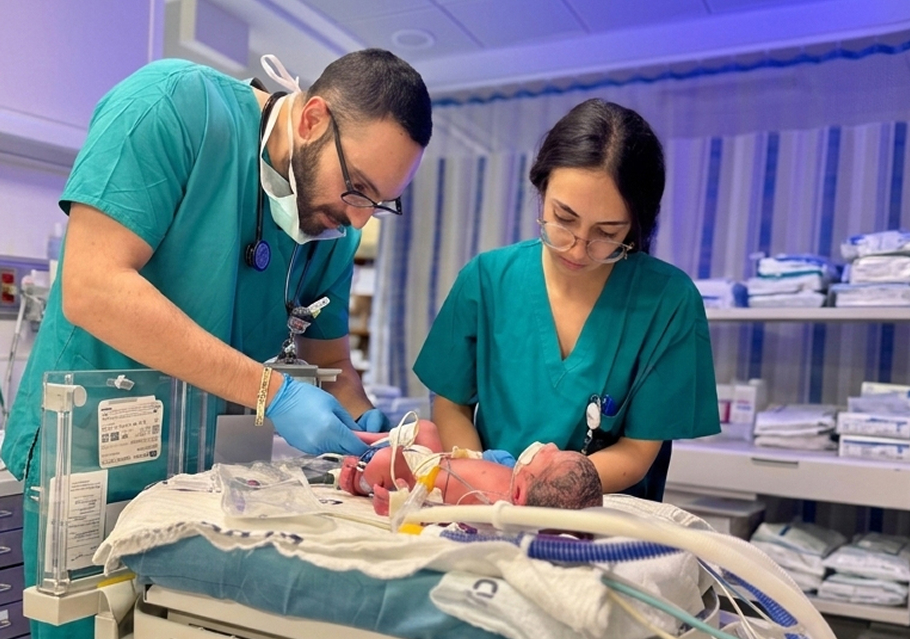by Rhoda Smolow
Here we are, quickly approaching the point in the Jewish calendar when we celebrate new beginnings, take stock, reflect and atone — and set our intentions for the new year.
Hadassah brings together those of us who share an unwavering belief in our power to heal our world, together. This Rosh Hashanah, I hope when you hear the call of the shofar, you’ll hear a call to action, to help those who need us — in our families, our communities, our country, our world. In the face of uncertainty, it’s imperative that we affirm our commitment to living our values. In doing so, we help build a sense of purpose that will help carry us through whatever we face in the new year.
Ripple Effects of a Crisis
The Director-General of the World Health Organization (WHO), Tedros Adhanom Ghebreyesus, has left no doubt about the magnitude of a looming challenge, one we must face head on. The COVID-19 pandemic has caused mass trauma "on a larger scale than World War II," he said in March, before the Delta variant’s rates skyrocketed around the world. "When there is mass trauma," he said, "it affects communities for many years to come."
Hadassah doctors and researchers know physical and mental trauma inside-out and have brought this expertise to countries around the world in times of crisis — after national disasters, mass shootings, terror attacks and now during the pandemic.
The world needs us. Many of our Hadassah conversations around COVID-19 have been about innovation in treating and fighting the virus itself and helping our communities — and we have reason to be proud. As we look at the longer road ahead, we must consider the ripple effects of this virus, the ways this mass trauma will impact us in ways big and small — and start to think about how we can foster resilience, and reduce the risks, especially of PTSD.
Consider frontline workers, who may well be a harbinger of things to come. Study after study has found the mental toll of battling the pandemic day after day has been extreme, with high levels of burnout, depression, anxiety and PTSD.
"For nearly 18 months, critical care workers have been on the front lines of one of the worst medical crises in American history," writes Dr. Carolyn Barber in a recent Scientific American article. "The intensive care unit (ICU) death toll for COVID-19 patients is almost unimaginable: a mortality rate of approximately 35 percent.... Nurses in the ICU have served, suffered devastating loss and ultimately left the profession in droves." Those who remain fight on, understaffed in devastating situations.
In Israel, Hadassah hospitals' staff are being supported in several ways, including psychologists assigned to staff coronavirus units and the creation of "Resilience Groups." This is a model for the world. Frontline workers and health-care professionals in the United States need these kinds of support and safeguards, too.
I implore you: Join me and our Hadassah friends in letting policymakers know you support the Dr. Lorna Breen Health Care Provider Protection Act, which will help ensure that similar safeguards and assistance are in place for US healthcare professionals. The act is named after New York-Presbyterian Hospital’s former emergency department director, who took her own life in 2020, after fighting the coronavirus on the front lines, then contracting the virus herself.
On August 5, the eponymous bipartisan legislation passed the Senate. With your help, we can honor her memory and make sure it passes the House, too.
"All feelings are normal following traumatic events," says Dr. Shiri Ben-David, head of Rehabilitation Psychology at the Hadassah Medical Organization. "What is not normal is the traumatic event." Acknowledging our feelings is key. Finding meaning and committing to our values can help us cope, she says.
When it comes to trauma — our own or others' — actions matter. Are we actively fostering resilience? Are we mitigating risk? Dr. Ben-David is clear: we can reduce risk using strategies and behavioral adaptations to "respond normally to today’s abnormal reality." Acknowledging our feelings — helplessness, stress, anxiety, depression — is one way we mitigate the risk of long-term mental health effects, like PTSD.
Women and PTSD
Living through trauma doesn't mean you'll end up with PTSD. Yet many will. PTSD doesn't discriminate, not by age, ethnicity or nationality. Women are twice as likely as men to develop PTSD in their lives, according to the Office on Women's Health at the US Department of Health & Human Services. That translates into approximately 1 in 10 women.
Yet women tend to suffer longer with PTSD symptoms than men before diagnosis and treatment, four years on average, compared to one year for men. It's important that we recognize the warning signs and learn how to mitigate the impact of stress — and trauma. This way, we can help make sure the people in our lives get the treatment they need.
Fostering Resilience in 5782
So as we head into a new year and an uncertain future, we need to understand that this trauma will shape the landscape that lies ahead. So yes, we must consider the risk factors that make a person more likely to develop PTSD. We must remember that there are resilience factors, too, and that these are the ones we must foster.
During the High Holidays, we wish our friends and family "g'mar hatimah tovah," that they be inscribed in the Book of Life. In the face of a global health catastrophe, these words can take on added meaning. However you observe these Days of Awe, I hope you’ll join me in committing to doing everything you can to foster resilience in the world around us.
Shanah tovah.



.svg)






